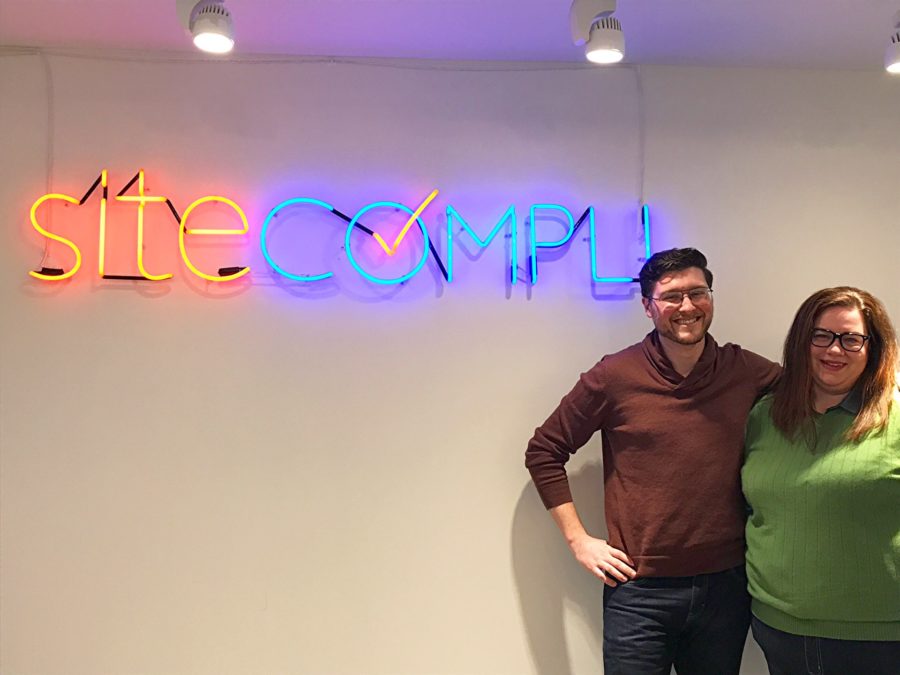In any given week, our Support team fields chat requests from hundreds of SiteCompli users, asking questions about navigating their accounts and NYC’s complex web of regulations.
This week, the Blog sat down with Lindsay and James, two of our Customer Support superstars and bonafide compliance experts. Over legos and coffee, we got the inside scoop on how folks are utilizing Live Chat to resolve their most complex compliance dilemmas.
 |
1. What Everyone’s Asking“A good number of the questions we get are about violations,” notes Lindsay. James agreed, commenting that the most popular type of question on his end was some form of, ‘What’s this violation for?‘ He said, “…violations are issued from several different agencies for several different reasons, so it’s critical that when people ask these questions we get it right.” Lindsay also mentioned that a frequent ask was about the duality of FDNY violations – specifically, how paid FDNY-ECB infractions are still open because of missing compliance paperwork. “Understanding how the FDNY handles each separate part of the violation – fines and compliance – is really important for making sure they’re taken care of ASAP.” |
|---|
2. What Everyone Should Be Asking
One question that’s a great follow-up to ‘What’s this violation?’ is, ‘How can I prevent this violation in the future?’
“That’s definitely something we can help with,” says James, mentioning inspections, permits, and other types of proactive records in your SiteCompli account that can help you prevent infractions. “It’s not just about figuring out what happened, or how to fix it – it’s making sure it doesn’t happen again.”
While we have resources to help you understand and prevent violations, it’s always a good idea to talk with someone and confirm you’re on the right track. Next time you’re curious about industry-wide best practices for preventing types of violations, ask us on Live Chat!
 |
3. The Best Way to Learn Compliance“It sounds silly, but I found that the best way to learn (and the way I learned myself) is to ask questions,” Lindsay said. NYC regulations are hairy, daunting, and constantly changing – it’s important to have a resource at your disposal that’s on top of the details, and can help walk you through the city’s processes, step by step. Moral of the story? Ask away! Lindsay, James, and the rest of our team are here to help you navigate the wide world of real estate regulations, all without having to leave your SiteCompli account. Log in, and let us know how we can help. |
|---|



